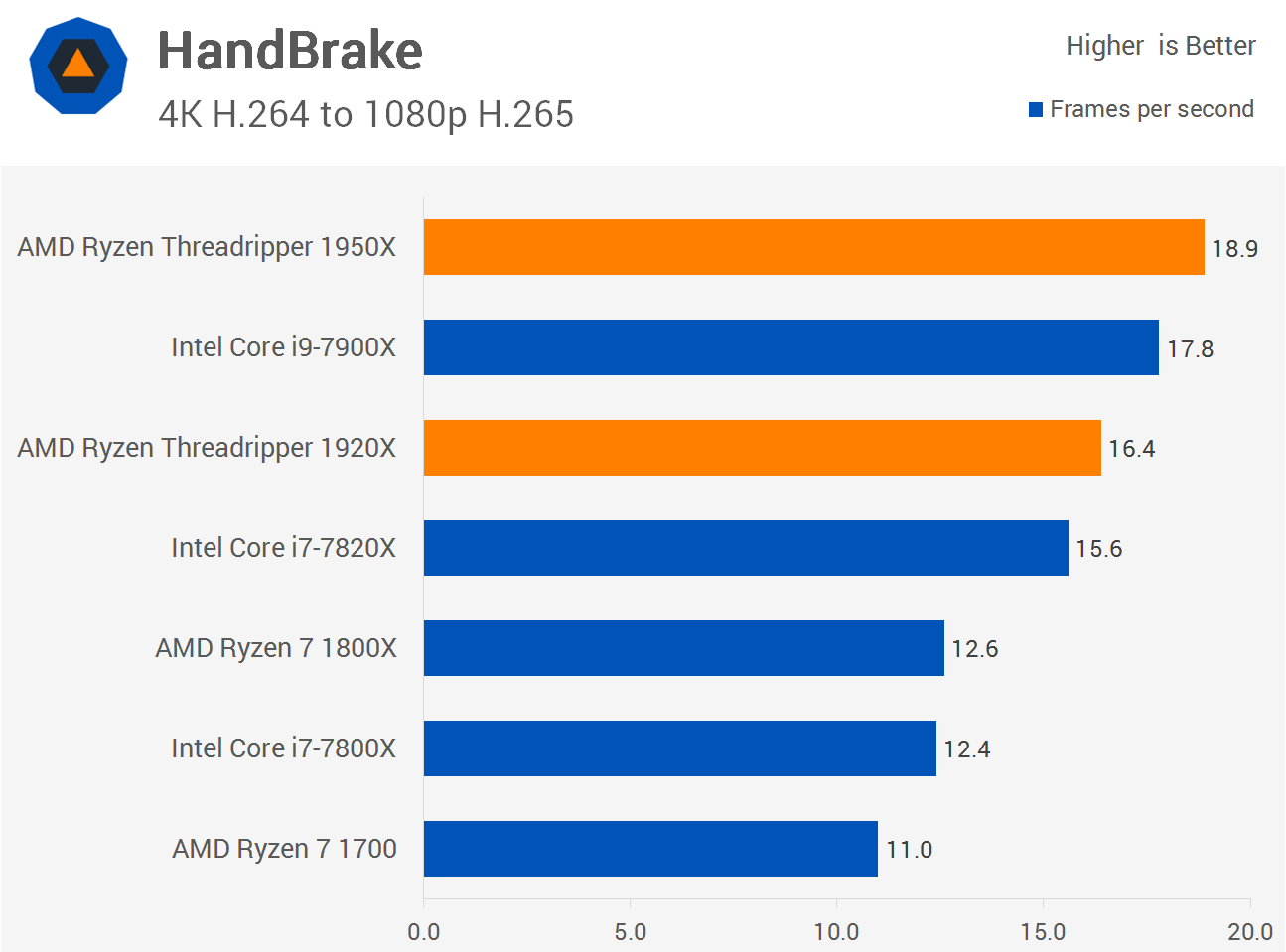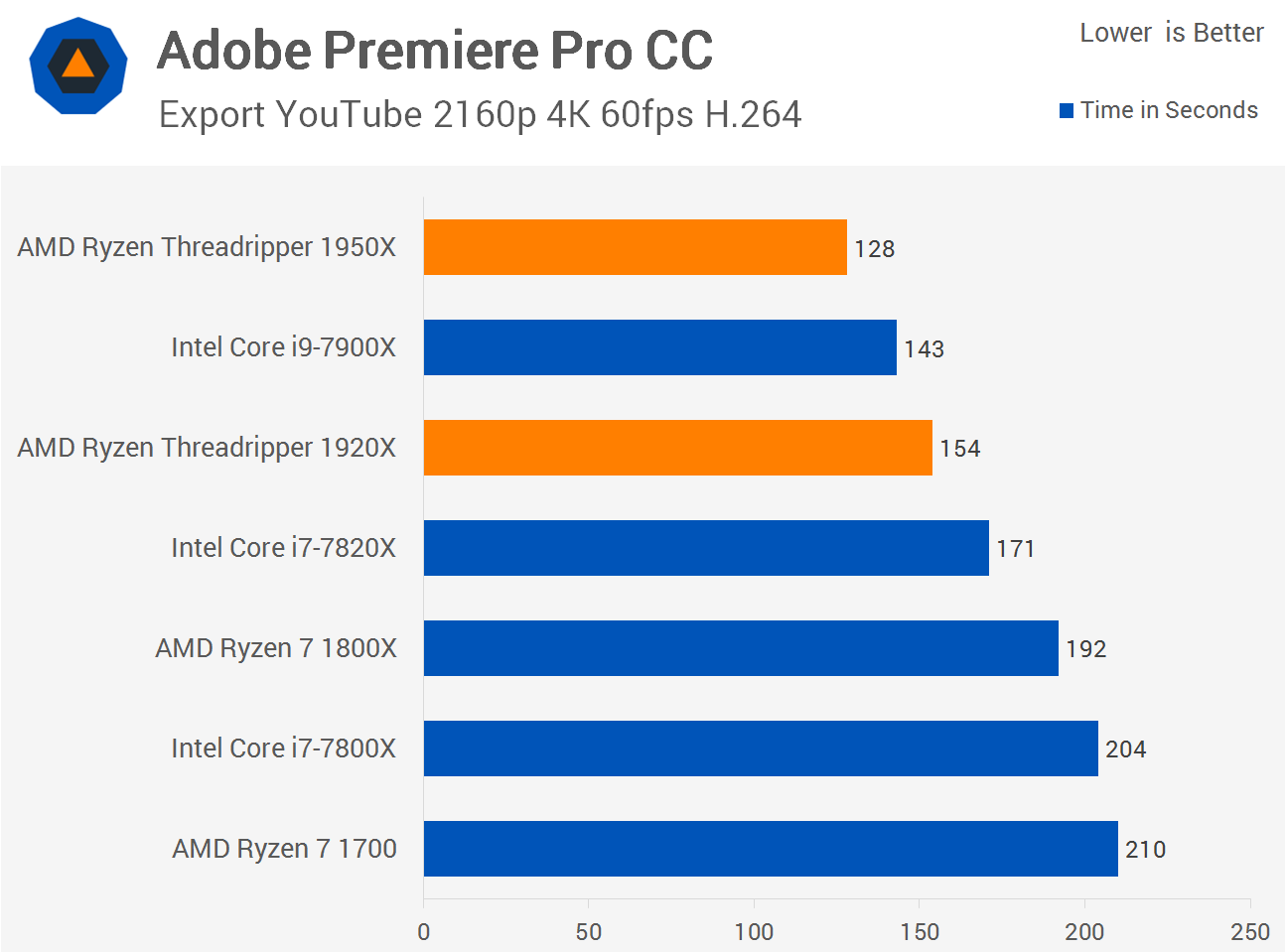Encoding Performance

Handbrake is a popular application for encoding video and we've used it to convert a 4K H.264 video to 1080p using H.265 and recorded the average frame rate. The 1950X was 6% faster than the 7900X in this test, not a huge gain but given both CPUs cost the same amount it's a good result for the Threadripper CPU. That said the 1920X does cost 33% more than the 7820X and yet it was just 5% faster here, so a less impressive result for AMD in that comparison.

The Premiere Pro CC results interest me the most as I spend a lot of time rendering these 4K videos on my Core i7-6950X editing machine. Back when I first reviewed the Core i9-7900X I said that I planned to probably replace my 6950X with Threadripper.
However, I also noted that the current version of Premiere Pro CC isn't that good at taking advantage of high core count CPUs and as a result the 7900X was just 4% faster than the 6950X, so a bit of a disappointing result there. This benchmark is CUDA-accelerated by a GTX 1080 Ti so keep that in mind, but there aren't a huge amount of effects in my videos for the GPU to accelerate.
Given that the higher-clocked 7900X was just 4% faster than my 6950X and both are 10-core parts, I wasn't hopeful for Threadripper to save me much time. Needless to say, I was pleasantly surprised when the 1950X took just 128 seconds to render the 1 minute 30 seconds sample video. That's a 12% improvement over the 7900X. Meanwhile the 1920X was also just 7% slower than the 7900X.
All of this is to say that it looks indeed like my next build will employ a Threadripper processor – the 1950X specifically.
